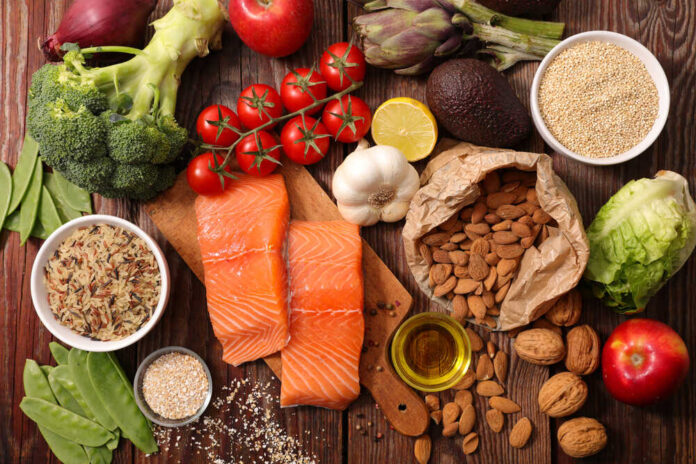
Between your brain and your gut, there is a communication system that allows the two to influence each other.
This gut-brain axis is a complex network of nerves, hormones, and bacteria, and through it, emotional states like stress and anxiety can result in uncomfortable digestive issues.
And the reverse, too—your diet can affect your emotions and behavior.
The Link Between Diet and Depression
Recent clinical research has shown a clear link between diet and depression.
For example, people who consume a diet high in processed foods, sugar, and unhealthy fats are more likely to suffer from depression, while those who consume a diet rich in fruits, vegetables, and healthy fats are less likely to experience depression.
One primary reason for this connection may be the impact of diet on the gut microbiome. The ecosystem of microorganisms that live in your gut plays a crucial role in producing the neurotransmitters (such as serotonin and glutamate) that regulate mood and emotions.
A diet high in processed foods and added sugars can disrupt your gut microbiome, leading to reduced production of neurotransmitters and a greater risk of depression.
In addition, a diet high in unhealthy fats and low in antioxidants (from plant-based foods) can lead to inflammation in the body, which has also been linked to depression. Inflammation triggers the release of cytokines, which can disrupt the balance of neurotransmitters and contribute to feelings of sadness and anxiety.
The Benefits of a Healthy Diet for Depression
A healthy diet provides numerous benefits for individuals living with depression. A diet rich in fruits, vegetables, and healthy fats provides the necessary nutrients for the body to produce neurotransmitters, which can help improve your mood and emotional state.
Additionally, a healthy diet can help reduce inflammation in the body, which can further improve mood and reduce the risk of depression.
Fermented foods, such as yogurt, kimchi, and sauerkraut, are another good choice for people struggling with depression. These foods provide beneficial probiotic bacteria that may help increase the production of serotonin in the gut, leading to an improvement in mood and a reduction in symptoms of depression.
Making Changes to Your Diet to Improve Depression
Making changes to your diet can be a powerful tool in the management of depression.
Here are a few tips to get started:
● Increase your intake of fruits, vegetables, and healthy fats. Try to eat a variety of colorful produce and choose sources of healthy fats such as avocado, nuts, and olive oil.
● Limit your consumption of processed foods, added sugars, and unhealthy fats. These foods can disrupt your gut microbiome and contribute to inflammation.
● Incorporate fermented foods into your diet. These foods provide beneficial bacteria that may help regulate mood and emotions.
● Stay hydrated by drinking plenty of water. Dehydration can cause feelings of fatigue, which can exacerbate symptoms of depression.
Making changes to your diet may take some time and patience. Try to approach this process with a positive attitude.
While diet alone may not cure depression, it is a valuable way to help manage symptoms and improve overall well-being.






















